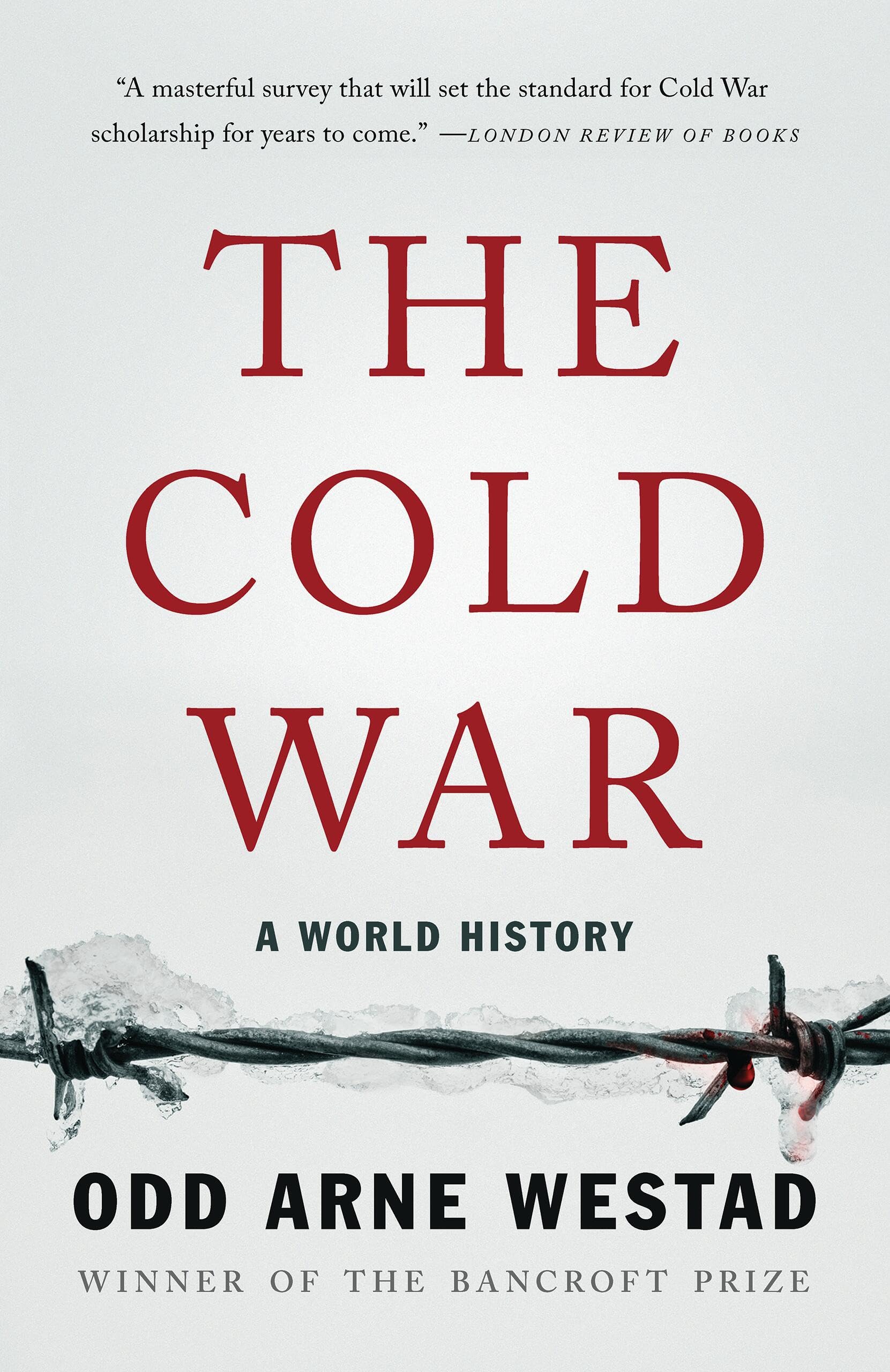Customer Services
Copyright © 2025 Desertcart Holdings Limited
Desert Online General Trading LLC
Dubai, United Arab Emirates


Full description not available



M**S
Thorough Summary of a Complicated Conflict
This is an exceptional book for people who are willing to invest a considerable amount of time to understand the underlying currents of the Cold War. What was most revealing was just how horrible the atrocities were after World War II ended. Most people reference the horrors of World War II as ones we can never allowed to happen again, but they do not realize that they already did happen again several times over in the Soviet union, China, and much of the developing world after European empires collapsed. The book goes into a bit too much detail at times, which is why readers need to invest quite a bit of time to get through this book. That said, it is an extraordinary piece of work.
G**W
Enjoyable and informative read
Excellent book- I enjoyed the read
A**S
A very good, almost great History of the Cold War
I enjoyed reading the book and its conclusion about the post Cold War errors in U.S. policy due to the distorting Cold War lens is original and worth debating. On the whole, the ideological position is perhaps too critical of the role of the U.S. in the Cold War, and it reminds me a bit of the theory of equivalency my middle school and Lyceum teachers were so proud to present: “Communism and Capitalism are two ideology equivalent in their overall average between the Good and the Evil delivered to the citizen”. The author seem to forget the order of magnitude difference between the number of human lives cut short by the catastrophic Marxist Leninist ideology in the Soviet Union, China, Cambodia, Eastern Europe, Vietnam and Cuba and the evil perpetrated by the “anti-communist”. Another interesting omission is any discussion of the historically curious and potentially fatal Chinese repudiation of the communist party even more than 20 years of joining the list of capitalist economies.Overall, I do recommend this wonderful book, both as a reasonable detailed account of the Cold War and an essential springboard for those who wish to start a study in depth of the second half of the twentieth century.
P**N
Masterful
Masterful global synthesis
O**E
Exellent oveview and reflections.
The author is summing up important events before during an after the cold war. He concludes that the US "won", which may be hard for some to accept. The same goes for his ecaluation of the Marxist - Leninist legacy. But many of us will share his conclusions. The quote of an old Bulgarian conmunist boss at the end of the book is pricless.Anecdotes an characterisations of key players both precise and entertaining. For those of us who remember much of this from growing up this is both an entertaining and intresting read.
C**T
Great book on the Cold War
A very worthwhile read, I came away from this book knowing much more about the world and its recent history. It is a fairly long book, 700 some pages, but not repetitive.
P**N
The Global Reach of the Cold War.
Mr. Westad does an outstanding job of showing both the global reach of The Cold War. How essentially what started out as a bipolar conflict between the US and USSR over control and domination of Europe spread to Asia, Latin America and Africa. He also shows its limitation while both the US and USSR saw everything in that prism. In most parts of the world that global conflict took a back seat to the end of colonization, the vast gaps between rich and poor in many parts of the world. The result was that both US and Soviet policy makers made decisions that severely negatively impacted those countries that became battlegrounds between the two competing ideologies. Some may not care for the layout of this book how Mr. Westad goes from country to country or region to region. It is not specifically a chronological order of The Cold War, though it does have that component. I found it interesting to see the Global reach of the Cold war and its limitations .
E**N
Provides Good Overview, Not Much of a Globally-Cohesive Narrative
Learned a lot reading the book and enjoyed the read. The book is pretty long though, so if you go slowly I could see it becoming a slog.Biggest problem with the book in my opinion is that (since I was not alive when any of these events occurred) it is hard to place the events described within a global timeline. The book is organized around kind of sub timelines which focus on events that form a cohesive and related sequence usually within a specific region, but these overlap in time and so you are constantly jumping forward / backward. I found it hard to understand the simultaneous events going on in other parts of the world while reading these sections. Not sure what could be done about that; maybe just inevitable as just covering events chronologically would lose much of the cohesiveness.Also noticed that there is a lot of repetition (like saying basically the exact same thing but 40 pages apart) although could also be a plus as you might forget things.Also you realize how much of a bird's eye view the book is when a topic like the Vietnam war is covered in very few pages (like 25 pages).
Trustpilot
1 month ago
2 weeks ago